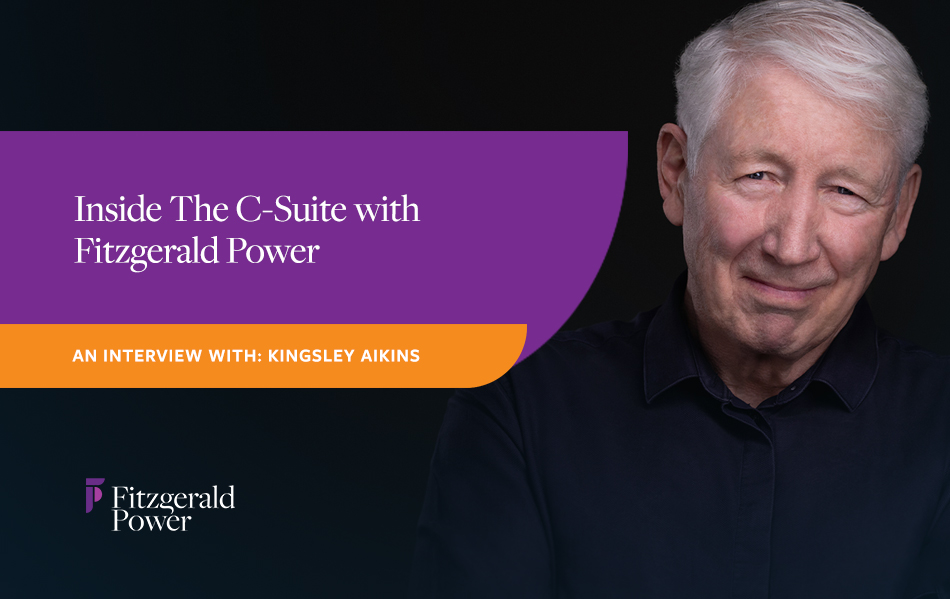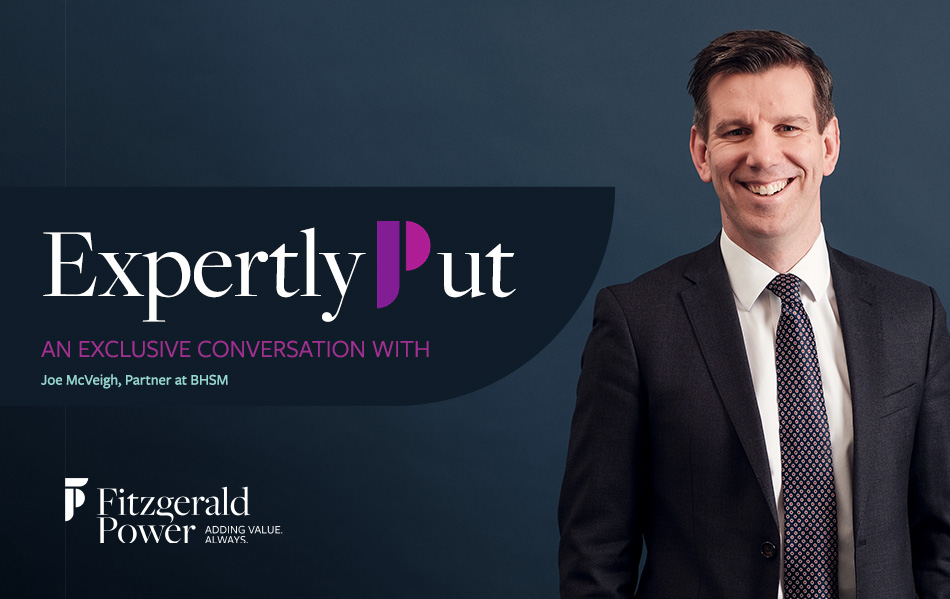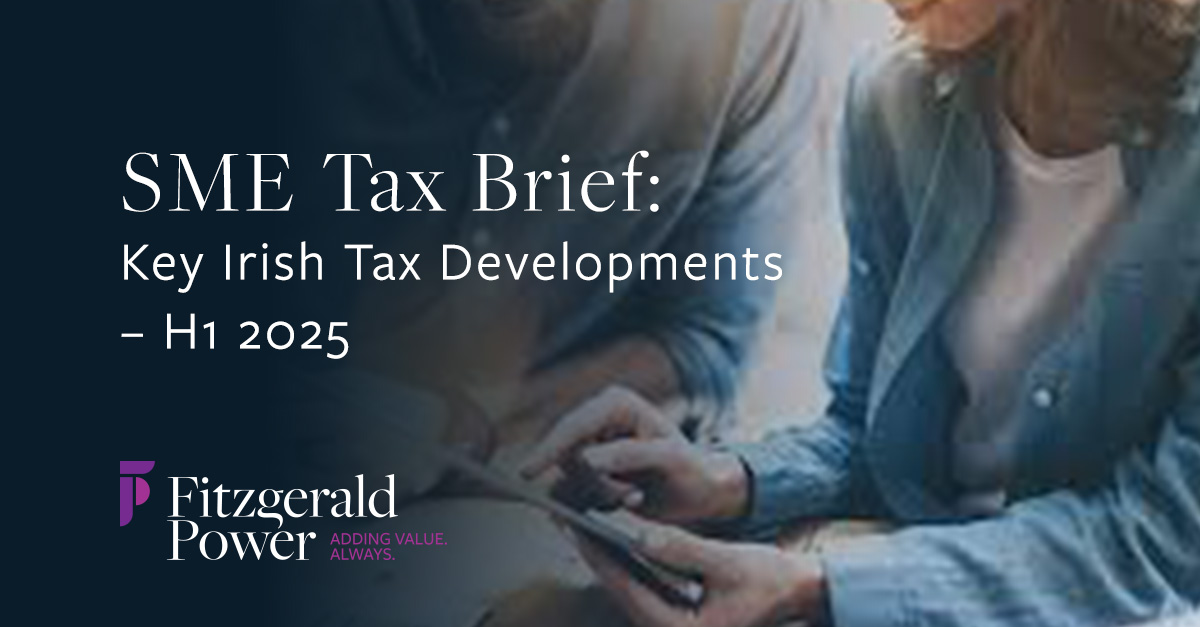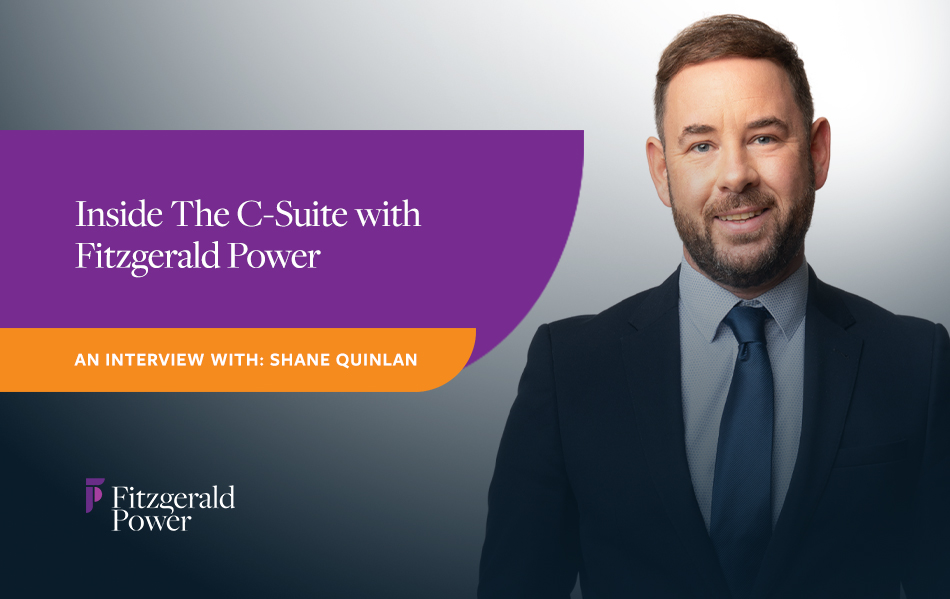“Networking is all about giving, not getting.”
In Fitzgerald Power’s interview series, we’re speaking to people with different perspectives who feel they can offer more to the workplace, from the water cooler all the way up to the C-Suite.
Back in November, the World Health Organisation (WHO) declared loneliness to be a pressing global health threat, with the US Surgeon General saying that its mortality effects are equivalent to smoking 15 cigarettes a day. As anyone might have guessed, this is an indirect result of the pandemic – an unusual situation which saw us sit inside for two years. Relationships play a big role in our personal happiness, our professional success in the workplace and even impact how long we live. And while we may be more connected (albeit virtually) than ever before, meeting new people and fostering genuine connections seems harder than ever. The solution? “Networking,” Kingsley Aikins, CEO of The Networking Institute, insists. “I think one of the problems with networking is that it has a lousy image,” he smiles. “It sums up the notions of sleazy, slimy individuals, late at night in a bar, flicking out business cards. My perspective is that networking is about giving, not getting. It’s all about giving to the individual on a consistent basis, which, if you do, comes back to you from the network.”
Aikins is an Economics and Politics graduate from Trinity College, who has lived and worked all over the world, including Sydney, where he spent eight years as the IDA Ireland and Enterprise Ireland representative and Boston, where he spent 17 years as the Worldwide CEO of The Ireland Funds. In 2010, he moved back home and set up The Networking Institute as a response to what he saw as a need for training in networking. “I was posted out to Australia and when I arrived there, I didn’t know a single person,” he says from his home in Dublin. “My mum gave me the name of a son of her neighbour that she was friendly with. So I rang him and said, “Look, I don’t know anybody, but could you introduce me to the local Irish business network here in Sydney?” And he said, “Well, there isn’t really one.” So I said, “Why don’t we set one up?” There were about 10 of us at the first event, and it’s now the biggest Irish business network in any city in the world. All from a phone call. Then, I got in contact with businessman Tony O’Reilly, who headed up Heinz at the time. We wanted him to be involved, and he happened to be in Australia the following month and met me for lunch. After that, I worked for him for 21 years.”
In 2020, The Networking Institute – which offers extensive online training programmes in networking, philanthropy, fundraising, speaking and presenting as well as diaspora engagement – moved to online delivery through webinars of presentations and workshops. This expansion saw the organisation work with over 100 companies – including non-profits and governments – across 30 countries, as they seek to embed networking as a core competency and an essential life skill to achieve their goals. “I think early in your career, you get paid for what you do,” Aikins says. “And later in your career, you get paid for who you are. A lot of people think that the technical skills they need to get their job in the first instance are critically important. But they actually become less important as you get older, and relationships become more important. And people often miss that kind of inflexion point in their career.”
Networking is not a new concept. It has been around since the dawn of time and will continue long after we’re gone. But while there are a few brand-new, surprising ways to approach it, there are different angles to consider when building and maintaining relationships after a period of Covid-19-related complacency. “I think five quite significant challenges have happened in recent times in the workplace,” Aikins says. “Firstly, there’s less business development. There’s less learning on the job, particularly for the next generation. Then there is less serendipity and chance encounters, where you’re bumping into people at the coffee station, or that kind of stuff. There’s also less company loyalty and less company culture. They are the five big issues that have been caused by what’s happened over the last few years. So we’ve got to kind of work our way back. And then of course, you know, the emergence of AI and robotics and automation, all those things are also adding to the mix of a different kind of world environment. Change is certainly in the air, and so the way we approach relationships and connection has to change, too.”
Aikins talks about the importance of a diverse networking group regularly. However, with a tendency to stick to what we know, diversity often gets overlooked. “I think it’s one of the challenges we deal with today, a concept called homophily,” he says. “Homophily is a kind of fancy Greek word, but it’s the tendency we all have to hang around with people who are just like us. So when you think about it, you know, the people you go to school with, play sports with, marry, go on holidays with, they tend to be quite like us. As a result, we produce people like us, too. But that’s not what the world out there is like. I mean, this country used to be called male pale and stale. Whereas now, it’s incredibly diverse. In fact, 17% of the people who live here weren’t born here, that is higher than in the US. But here’s the question you need to ask yourself: Does your network reflect the diversity of the economy you work in or the society you live in? For most of us, the answer is no. All the research shows that if that’s the case, then you, as an individual user or a company, will underperform. So the challenge now is, how do you seek out like-minded people? How do you talk to strangers? How do you find ways to build diversity in your network? Because if you don’t, you will end up living in an echo chamber. And you’ll be hanging around with people who completely reinforce your own views, opinions and biases.”
To combat this, Aikins promotes four different types of networking. “You need to have your own personal network, that’s all your friends,” he says. “You need an operational network; they’re the people who would allow you to do your job and be productive. You’re not buddies with these people, but you have to have a relationship with them – that will allow you to work well and get on with it. Then you also need another type of network, a strategic network. They are the people who are going to help you get to where you want in the next few years. And they’re all about the future; the other ones are about the present. And then finally, you probably need an online network, because it’s a relatively recent phenomenon. I think nearly a billion people are on LinkedIn, and 99% of them don’t post anything. You know, there’s opportunity out there.”
For those who feel that they’ve lost their mojo post-COVID when it comes to networking, Aikins has a few choice words of advice. “Again, building diversity into your network is very important,” he says. “Also, people have to invest and train themselves. The guy who founded LinkedIn, Reid Hoffman, wrote a book called The Startup of You, and in it he says you have to look at yourself as the Managing Director, CEO, and marketing director of a company called Me Inc. You have to create your own career playbook, invest in training yourself and push to keep going. You have to find a way to keep your name mentioned in rooms where you’re not. The ideal is to be known, not famous. You’re not looking to be a Kardashian here, just for people to be on your team.”
Finally, Aikins insists that the best thing anyone can do to further their career and invest in themselves is to listen more. “Learn to ask questions,” he says. “And you know, the most important thing about listening is actually good and interesting and intelligent follow-up questions. It’s not rocket science. We have two ears and one mouth for a reason.” He, too, comments on the power of the collective. “I think we have this myth of individualism out there,” he says. “That life is about the Lone Ranger, the rugged individual, the Wonder Woman. It’s bullshit, everything is about connection, collaboration and cooperation. Even for individual sports people, I heard Rory McIlroy speak recently about ‘we,’ meaning his team. Even though he is the only guy hitting the ball, his team is the reason he’s there.
“Opportunities don’t float around on clouds; they’re attached to people. So if you’re looking for an opportunity, you’re really looking for a person.”
For more information on Kingsley and The Networking Institute, check out his LinkedIn page here.





